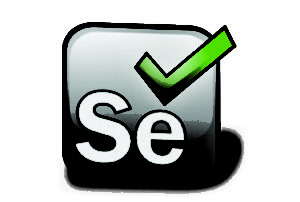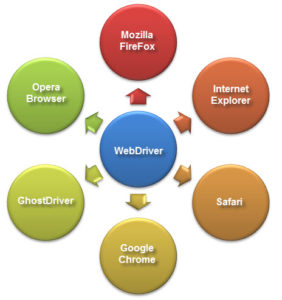Over the past decade or so Selenium has developed into a very viable competition for paid automation software that end up costing the enterprise tens of thousands per year. We at Softech, LLC specialize in developing a automated testing solutions using Selenium. If your enterprise is looking to get into Selenium and would like our help, please contact us and we can define an open source Selenium automation solution for you.
 Why Selenium?
Why Selenium?
Selenium cures mercury poisoning. To understand this metaphor you must first understand the current software known as HP ALM/UFT was a developed by a company named Mercury. Selenium was a direct competitor that was free and would rid your enterprise of Mercury. Pretty nifty huh? We think so! We have used Selenium on multiple engagements and are very confident it can be used to meet your web testing needs.
Selenium can use virtually any language to script, so you do not have to necessarily have an expert Java person. Our preferred method is Java, however you can use Perl, Python, Ruby and many more to script in Selenium. No need to learn proprietary language either.
Selenium is highly extensible, with thousands of developers contributing to it’s libraries. QTP on the other hand has limited extension and it would take years for HP to launch something you might need now. Thanks to having multiple libraries you can run tests against any browser with Selenium, while QTP is more limited in it’s ability. With so many browsers out there, can you really afford to not test your site on all the browsers?
Selenium can run in any Operating System, while QTP requires Microsoft Windows to run. You will have greater flexibility if you run Linux with Selenium but that option sadly is not available in proprietary software. Of course Windows is pretty standard in most enterprises but would you not want your test automation team to have the flexibility.
 Selenium can run parallel tests, which is one of it’s biggest benefit. QTP to it’s credit can also run parallel tests, however you have to have Quality Center to do so. Not only do you have to pay for QTP but you will also have to pay for another expensive HP product. Selenium on the other hand can run parallel tests with a few laptops in a grid configuration.
Selenium can run parallel tests, which is one of it’s biggest benefit. QTP to it’s credit can also run parallel tests, however you have to have Quality Center to do so. Not only do you have to pay for QTP but you will also have to pay for another expensive HP product. Selenium on the other hand can run parallel tests with a few laptops in a grid configuration.
Of course Selenium is not without it’s faults. For one it can not control anything outside of the browser without third party add ons. QTP can natively test web and desktop applications. QTP record and playback capability is much stronger than Selenium IDE. However, even with these shortfalls Selenium is free and the level of support in the online community is abundant. This is why we do not hesitate a bit recommending Selenium to our clients.
